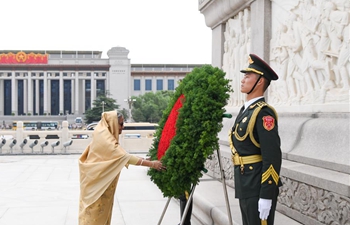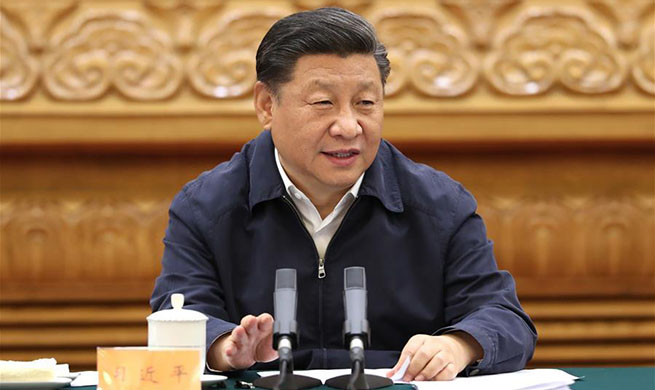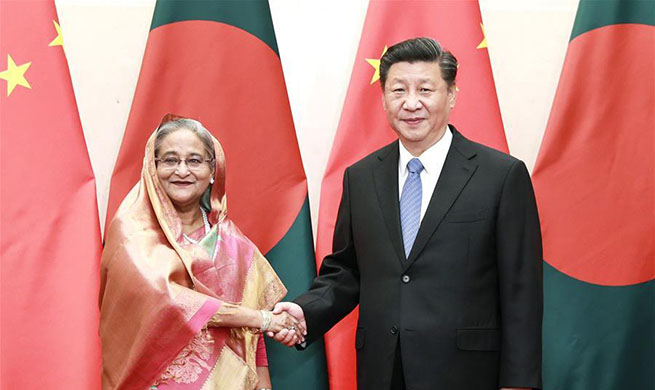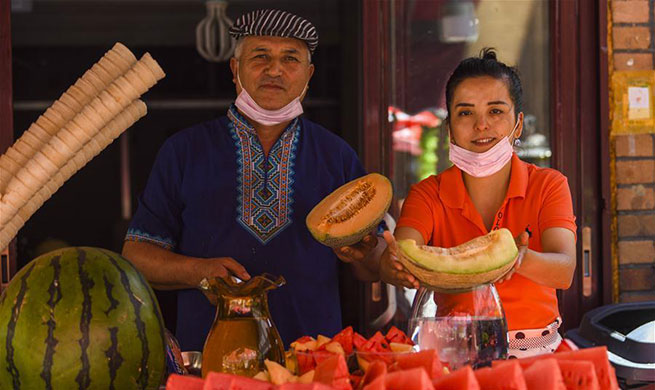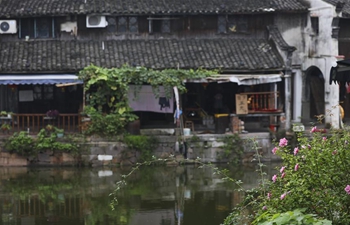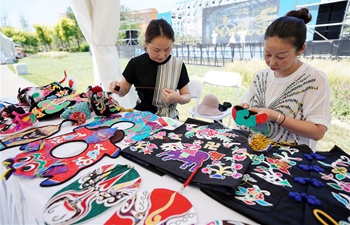TRIPOLI, July 5 (Xinhua) -- As the deadly fighting between Libya's UN-backed government and the east-based army in and around the capital Tripoli enters its fourth month, the humanitarian suffering increases with large numbers of people fleeing their homes away from the violence.
"The continuation of the fighting for more than 90 days without an end to the conflict means that humanitarian needs will increase even more and put pressure on the local authorities as well as international relief organizations," Mohamed al-Tarabelsi, a Libyan human rights activist, told Xinhua.
"The biggest problem is that the assistance which the organizations are trying to provide is still under threat. The fighting did not stop a day since the beginning. This endangers the transport of medical or food aids. Therefore, all parties to the conflict must be pressured to make a humanitarian truce to allow access to those stuck in or near the clashes areas," al-Tarabelsi said.
The army has been leading a military campaign to take over the capital from the government since early April.
The World Health Organization (WHO) on Friday revealed that the fighting so far has killed nearly 1,000 people and injured more than 5,000 others.
WHO calls for a "rapid and peaceful solution so that all people in Libya are safe from harm."
The fighting also forced more than 100,000 people to flee their homes away from the fighting.
The fighting did not affect the Libyans only, but also vulnerable immigrants, said Khalid al-Tarhuni, a Libyan political analyst.
Al-Tarhuni pointed out that the recent attack on a reception center for illegal immigrants in eastern Tripoli revealed the dangers that face the capital.
An immigrants reception center in eastern Tripoli was attacked later on Tuesday, killing 53 people and injuring more than 130 others.
The government accused the rival army of carrying out the attack, which the army strongly denied and in return accused the government of it.
During a meeting with Maria do Valle Ribeiro, deputy special representative of the UN secretary general to Libya, Libya's Interior Minister Fathi Bashagha on Thursday said the government is considering closing all reception centers of illegal immigrants in the country for security reasons following the deadly attack.
The UN Higher Commission of Refugees (UNHCR) and the International Organization for Migration (IOM) demanded closing the immigration reception centers in Libya.
"Including those victims at Tajoura, some 3,300 immigrants and refugees remain arbitrarily detained inside and around Tripoli in conditions that can only be described as inhumane. Moreover, immigrants and refugees face increasing risks as clashes intensify nearby. These centers must be closed," the IOM and the UNHCR said in a joint statement.
Al-Tarhuni said that the immigration crisis in Libya has put additional pressure on the aid operation.
"Thousands of immigrants need food, shelter and protection," he said.
"We cannot imagine the responsibility this would take, as thousands of Libyans were driven away from their homes to schools in difficult humanitarian conditions," he added.
Al-Tarhuni believes that the best way to reduce the impact of the crisis is to immediately transport the immigrants outside Libya to international organizations to take care of them.
"Libya is going through very difficult time as the war displaced more than 100,000 Libyans. Therefore, a permanent solution for immigrants must be made, not only by the Libyan authorities but also by the international organizations," Al-Tarhuni explained.
Libya is a preferred point of departure for thousands of immigrants wanting to cross the Mediterranean towards European shores.
Immigrant shelters in Libya are crowded with thousands of immigrants who have been rescued at sea or arrested by Libyan security services.
Libya has been suffering escalating violence and political instability ever since the fall of the late leader Muammar Gaddafi's regime in 2011.





